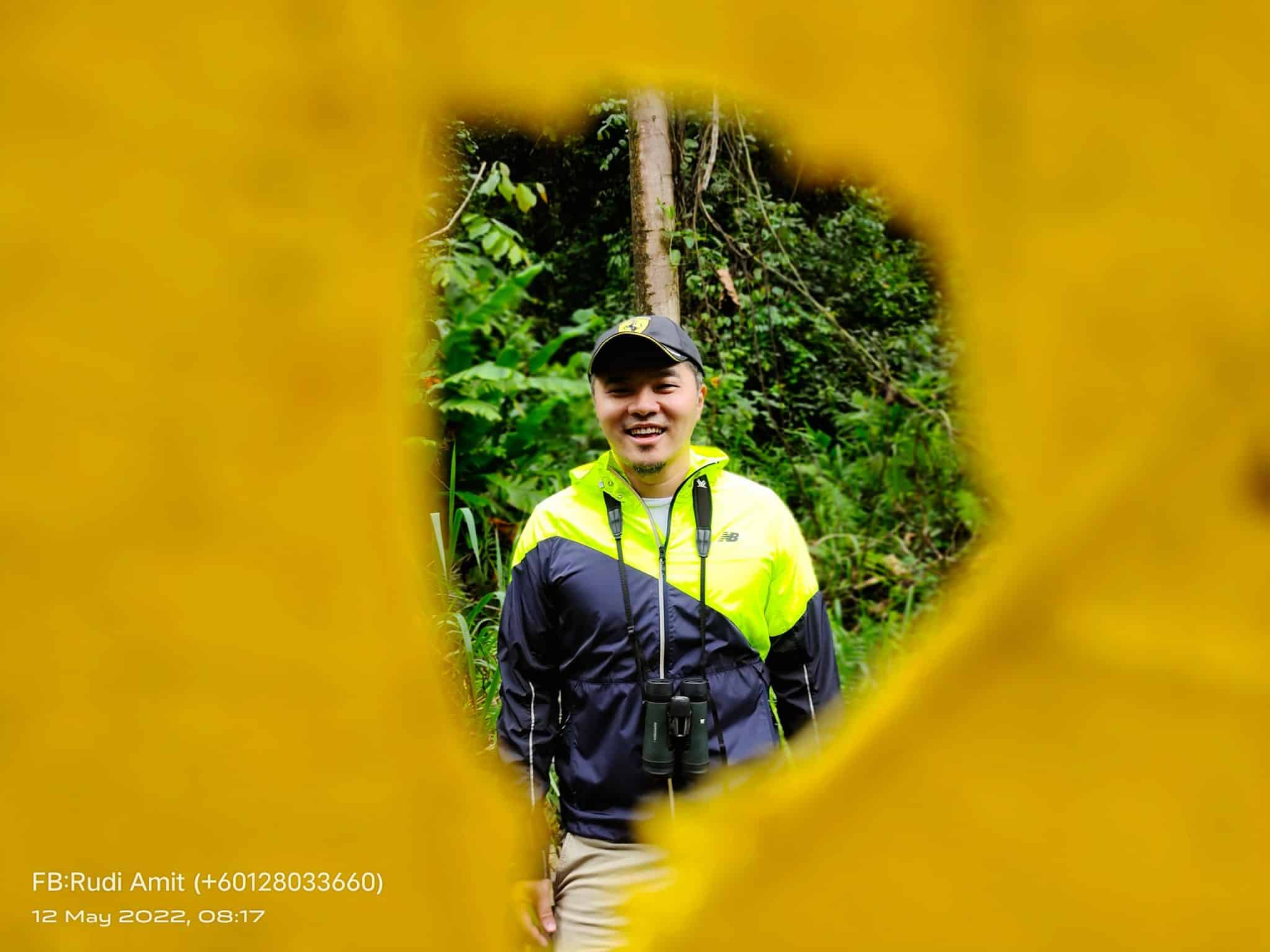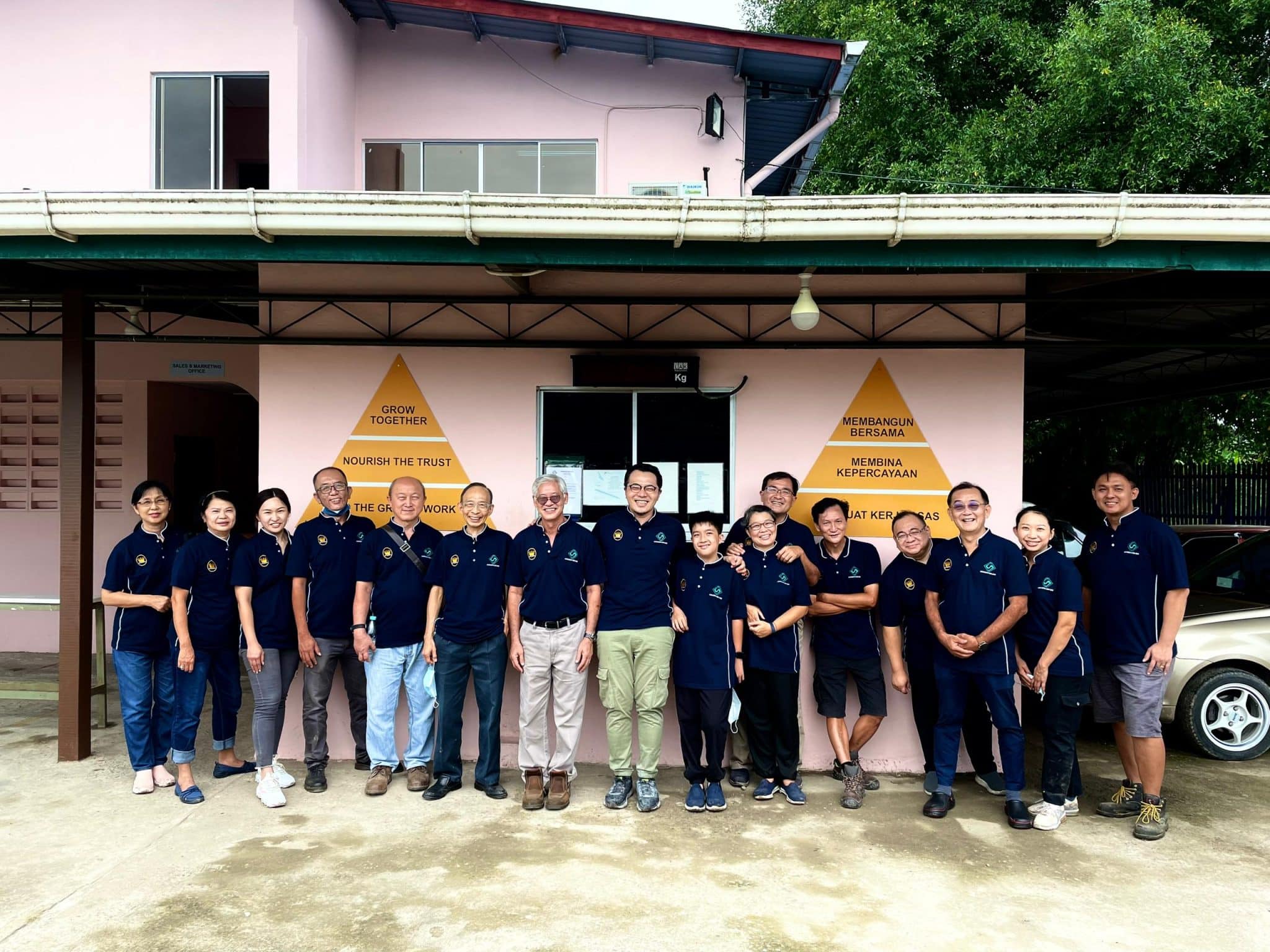3 ways you can be salt of the earth, says this fertiliser expert
Via the Salt&Light Malaysia desk
Michelle Chun // May 21, 2024, 3:54 pm

Being salt of the earth means being an agent of transformation wherever you go, says Abel, pictured here with some of his factory staff. All photos courtesy of Abel Teh.
Abel Teh was reading Luke 14 one day when he had an epiphany: When Jesus talks about being the salt of the earth, He wasn’t just referring to flavour.
Salt is good, but if it loses its saltiness, how can it be made salty again? It is fit neither for the soil nor for the manure pile; it is thrown out. (Luke 14:34-35)
“Luke 14 writes of Jesus referring to salt as a fertiliser and antiseptic,” noticed the managing director of Loongsyn Sdn Bhd, a fertiliser business in Sabah, Malaysia. “As a businessman dealing with fertilisers, it was a revelation.”
In ancient times, several civilisations used salt as a fertiliser in agriculture. Salt would break up hard soil, protect crops from disease or weeds, and increase crop yield.
As Abel, who has been in the industry for over a decade, pondered over the passage and Jesus’ words, he identified three qualities of a humble sack of fertiliser that can help believers live better as salt of the earth.
1. Fertilisers promote true fruitfulness
In general, a plant needs nitrogen, phosphorus and potassium to grow, Abel explained. When these nutrients are missing from the soil, fertilisers provide what is lacking.
Some inexperienced planters may use compounds that focus heavily on yielding fruit and neglect the health of the plant’s roots and leaves.
Just as fruit results from a thriving plant, the true richness of our lives comes from nurturing the seemingly insignificant aspects.
But there is a law of minimum in the planter’s world: The growth of plants is limited by the scarcest nutrient.
This means that if one tries to force fruit-bearing without nurturing the roots or leaves, the plant will fail to produce a bountiful harvest, explained Abel, who took over his father’s business in 2020.
Similarly, Christian business leaders might be drawn to prioritise visible markers of success such as profit, material wealth, status and power.
However, just as fruit results from a thriving plant, the true richness of our lives comes from nurturing the unseen or seemingly insignificant aspects, such as our relationships with God, family and others.
“When we get our priorities right, there will be fruit because we have nourished all parts of our lives through time with the Lord and following His commands,” Abel said.
Just as fertilisers transform their environment, Christians, too, ought to do so as salt of the earth.
We will then have the disposition of our Master, Jesus Christ, who loved others, inspired growth, encouraged many to turn away from sin and challenged them to rise up and fulfil their destiny.
“When we are fruitful, we can be role models and truly ‘salt of the earth’,” he added.
Abel firmly believes that an important part of being ‘salt’ (or ‘fertiliser’) is seeing the best in people, helping them grow and creating an environment for them to experience God’s transforming love.
This is something he prioritises as a leader.
For example, one of his administrative staff members is being trained by the in-house accounting team to be equipped with new skills for future career progression. An assistant factory manager, who is not highly educated, is also being coached in English.

As a businessman dealing in fertilisers, Luke 14 has given Abel fresh perspectives into what Jesus meant when He commanded believers to be salt of the earth.
Abel also recounted a time when a top-performing staff, who had been trained by Loongsyn, was headhunted by a bigger rival company.
“We released him to our competitor freely and without bitterness. If I were him, I’d have wanted to make this step, too, because it was a great opportunity,” Abel said.
2. Fertilisers increase capacity
In certain conditions, fertilisers can break up hard soil and create room for a plant’s roots to breathe and absorb nutrients.
Similarly, a Christian in the marketplace can break apart the “hard soil” of our workplaces and systems so that those in it can grow and thrive better.
“Fertiliser is pointless if left in the bag and not mixed with the soil.”
“For example, we can move beyond being purely profit-driven or building transactional relationships that are self-serving,” he explained.
Fertilisers can also increase a plant’s water retention capacity, enabling plants to survive dry spells and seasons.
In the Christian’s life, this means having deep reserves of resilience and faith, built up from time in the Lord’s presence during restful seasons.
These reserves will keep us grounded and unshakeable so that we can be a beacon of blessing and hope in times of crisis.
“When others are struggling or despairing, we can dig into our emotional reservoir built up in the Lord to be an oasis of encouragement and a well of nourishment to those around us,” said Abel.
3. Fertilisers transform environments for good
Finally, fertiliser has the ability to neutralise and lower acidic levels in soil, giving the plant a greater chance of yielding fruit.
For Abel, the true quality of fertiliser is seen in the worst soil environments.
“At work, we can easily ‘normalise’ behaviour that would be questionable or wrong in God’s eyes. ‘That’s business,’ we say. But keeping away from sin is not just avoiding wrong behaviour but practising right behaviour,” he said.

Abel with his management team. The second-generation business owner believes that, just as fertiliser helps plants grow, Christ-followers ought to bring growth and life wherever they go.
Therefore, the true quality of Christ-followers is seen when they are placed in difficult or toxic environments.
Just as fertilisers transform their environment, Christians, too, ought to do so as salt of the earth.
“Are we able to disarm toxic colleagues without dishonouring them through Christ-driven values such as patience, love, empathy, peacemaking and finding common ground?” Abel challenged.
A costly endeavour
Nevertheless, Abel acknowledged that being ‘fertiliser’ of the earth is not easy in this broken and sinful world. At times, following God’s commands will come at a cost, such as a promotion, well-paying contract or career opportunity.
“But fertiliser is pointless if left in the bag and not mixed with the soil”, he said.
“When you have counted the cost and still choose to be salt of the earth, you will truly live.”
He added that despite the cost, “this path of obedience has given my life meaning, and through that, a deep sense of purpose and freedom”.
For him, life is an ongoing revelation of who God is and who we are. After all, eternal life is knowing God and Jesus Christ (John 17:3).
“When you have counted the cost and still choose to be salt of the earth, you will truly live.
“And no matter what you go through, not a day will go by without His unfolding grace and the blessed assurance that your life is in His hands,” he said.
The verse 2 Corinthians 4,17-18 is one he clings to tightly: “For our light and momentary troubles are achieving for us an eternal glory that far outweighs them all. So we fix our eyes not on what is seen, but on what is unseen, since what is seen is temporary, but what is unseen is eternal.”
RELATED STORIES:
New co-working space is looking for the next Facebook to disrupt how we do missions
We are an independent, non-profit organisation that relies on the generosity of our readers, such as yourself, to continue serving the kingdom. Every dollar donated goes directly back into our editorial coverage.
Would you consider partnering with us in our kingdom work by supporting us financially, either as a one-off donation, or a recurring pledge?
Support Salt&Light



